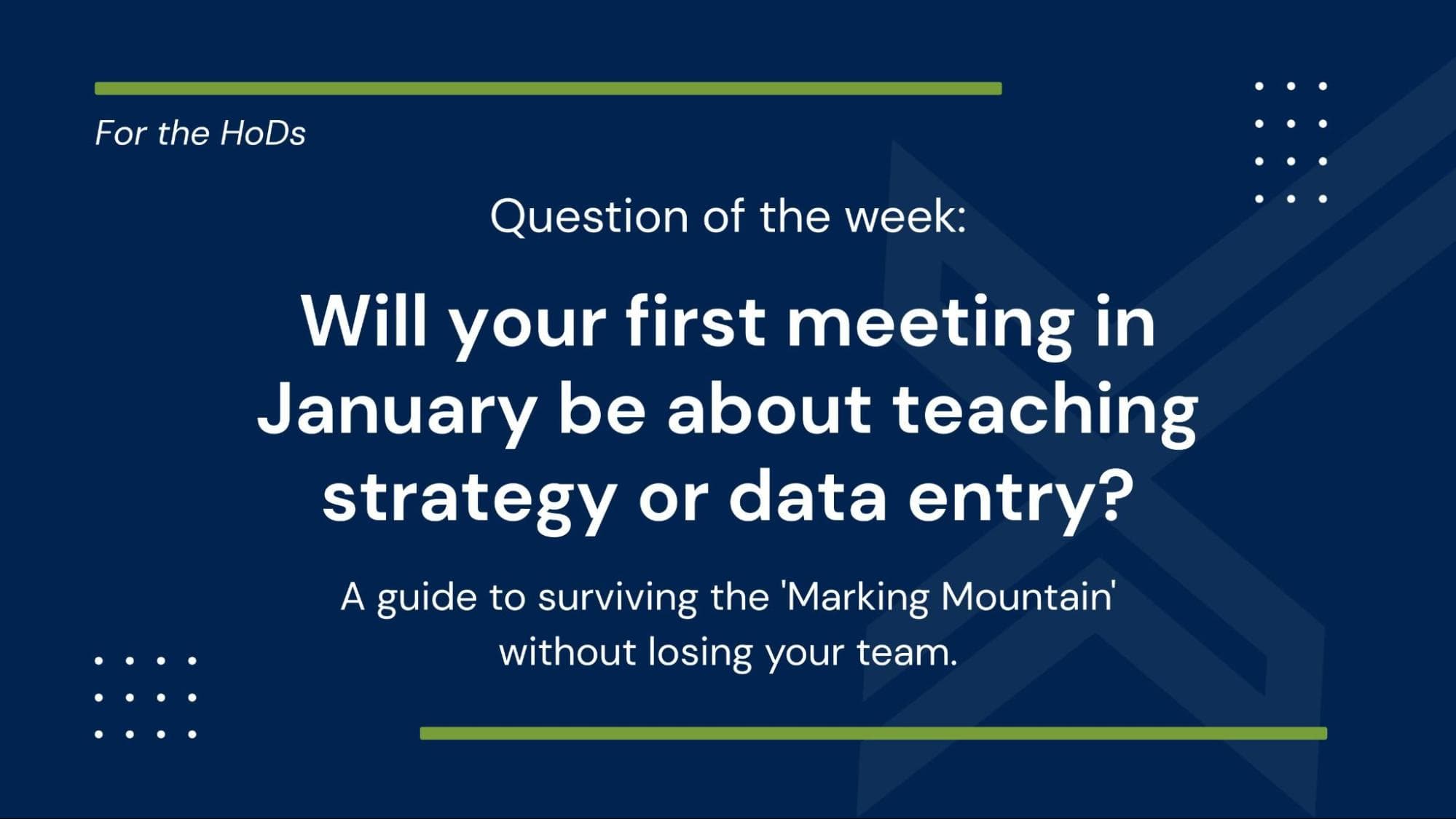How to Prepare for GCSE Science Mocks: A HoD’s 6-Week Checklist
It’s November. The clocks have gone back, the evenings are dark, and for every Head of Science, the "calm before the storm" has officially begun. You’re teaching a full timetable, managing cover for absent staff, and trying to keep Year 11 focused. But in the back of your mind, a massive logistical operation is looming: Mock Season**.**
This isn't just about "getting it done." The goal of the next six weeks isn't survival; it's ensuring that the mountain of data you generate is actually worth the effort. If you’re going to ask your team to mark hundreds of papers, that marking needs to be consistent, reliable, and actionable.
Here is your 6-week countdown checklist to ensure your department is ready logistically and pedagogically.
!How does the 6 weeks look like?
Weeks 6-5: The Strategic Setup (Deciding the Papers)
Before a single exam desk is laid out, you need to lock down exactly what is being assessed.
- Finalise Your Tiers (Higher vs. Foundation): This is the eternal headache. Who is on the borderline? Now is the time to make the call based on recent topic tests. A student sitting the wrong tier in a mock gets demoralised; a student sitting the right one gets valuable practice.
- The "Triple Science" Decision: With the new focus on Triple Science entitlement, you likely have more students sitting separate Biology, Chemistry, and Physics papers than ever before. Ensure your paper selection reflects this split accurately.
- Secure Your Papers: Are you using locked papers from 2024? Or a secure mock set?
Weeks 4-3: The Standardisation Meeting (Quality Control)
This is the step most often skipped when time is tight, but it is the single most important factor for data reliability. Do not wait until papers are on desks to discuss the mark scheme.
- Run a "Pre-Mortem" Meeting: Dedicate a department meeting to the mark scheme before the mocks.
- Pick the "Ambiguous" Questions: Don't waste time on the multiple-choice section. Pick three challenging questions, ideally the 6-mark extended response questions or tricky "apply your knowledge" (AO2) scenarios.
- Mark Together: Have every teacher mark the same three photocopied student answers. Compare the scores.
- Discuss: Why did one teacher give it 4 marks and another 6?
- Clarify: What specifically constitutes a B1 (independent mark) vs. an M1 (method mark) in this context?
- Align: Ensure your NQTs and non-specialists (e.g., biologists teaching physics) are on the same page as your senior examiners.
Weeks 2-1: Logistics & Student Prep
Now it becomes a military operation.
- The "Walking Talking Mock": If you haven't done one yet, now is the time. Walk students through a paper in the hall. Show them exactly how to read a command word and structure a 6-mark answer.
- Logistics Check: Hall seating plans, invigilation rotas, and checking you have enough scientific calculators.
- Set the Tone: Remind students (and staff!) that these mocks are diagnostic, not a judgement. The grade matters less than identifying the learning gaps.
The "Hidden" Week 0: The Marking Mountain
The exams are over. The hall empties. And then, the reality hits.
You are left with a stack of 300+ scripts per teacher. Biology, Chemistry, Physics. The "marking mountain."
- The Old Way: Your team loses their next two weekends. They rush through "tick-and-flick" marking late at night. Decision fatigue sets in. The data you get back in January is patchy, inconsistent, and weeks out of date.
- The New Way: You change the workflow. Instead of handing out physical papers, you "Scan and Upload."
This is where ExamGPT changes your post-mock reality.
- It handles the heavy lifting of marking, even those tricky 6-markers you standardised in Week 4.
- It applies the mark scheme with 100% consistency across your entire Triple Science cohort.
- It means your first department meeting in January isn't a data entry session; it's a teaching strategy session.
Psst… Want to ensure your January department meeting is about teaching, not data entry? See how ExamGPT can handle your science mock marking instantly**.**
